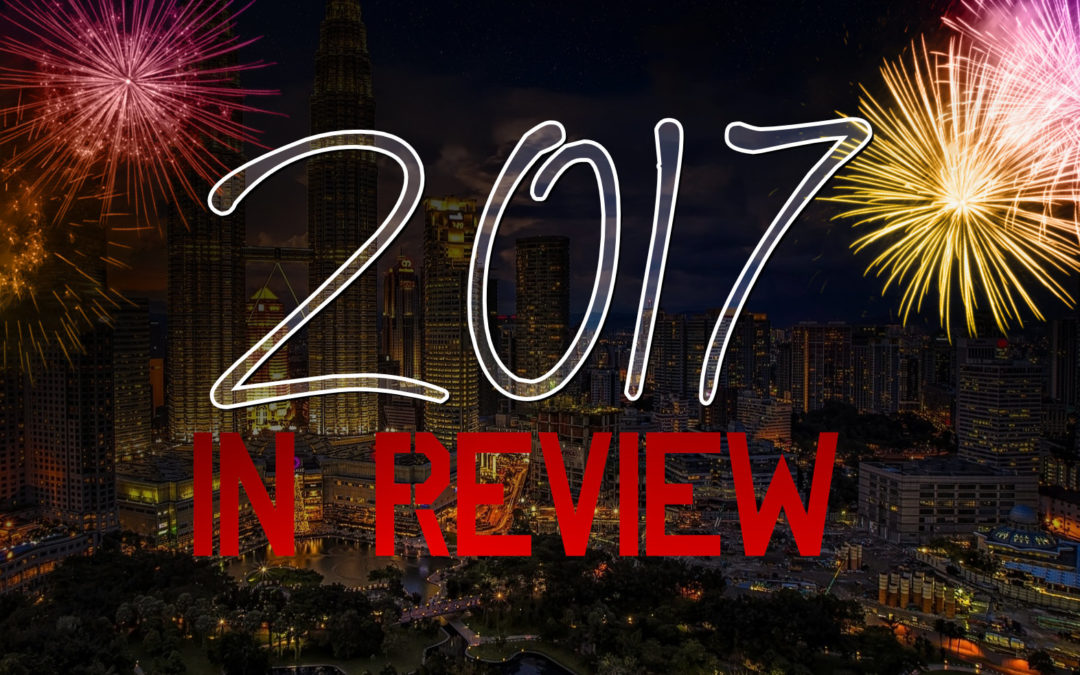
by John | Apr 8, 2018 | Investor Psychology, Learning from Mistakes, Personal Journey
The most important thing about a mistake is to learn from it and move forward. That’s easier said than done and it takes a lifetime of practice.
I’ve made various investing and financial mistakes over the years. It helps to keep in mind that even the most successful people in the world make mistakes.
The seven tips below are a great start to bouncing back from a mistake.
1. Acknowledge you made a Mistake
 If you don’t admit you made a mistake you can’t correct the underlying problem and bounce back. This means approaching anyone affected by the mistake and owning it.
If you don’t admit you made a mistake you can’t correct the underlying problem and bounce back. This means approaching anyone affected by the mistake and owning it.
Every minute spent denying a mistake was made is time lost in fixing the problem and moving forward.
You might also lose the trust of those around you when you don’t own up to your mistakes.
2. Stop making the Mistake
 Once you realize you’ve made a mistake it is important to stop doing whatever you’re doing that caused or is causing the mistake. If you’re spending too much money stop spending too much money. If you keep putting money in losing investments stop putting money in that losing investment.
Once you realize you’ve made a mistake it is important to stop doing whatever you’re doing that caused or is causing the mistake. If you’re spending too much money stop spending too much money. If you keep putting money in losing investments stop putting money in that losing investment.
In some cases there is a temptation to double down or simply try harder when doing so will only exacerbate the situation.
Trying hard is necessary for consistent success and it isn’t sufficient. You can work very hard in the wrong environment and not be successful. You can work very hard but use the wrong tools and be left with poor results. Hard work focused on the right goals using the rights methods is a proven formula for success.
Several years ago I lost a fair amount of money trading options. I kept trying in hopes things would turn around but I kept losing money. So I decided to stop and work on education and mindset.
There is an important distinction between the insanity of doing the same thing over and over again expecting a different result and perseverance. Perseverance requires introspection on your goals and methods.
“The definition of insanity is doing the same thing over and over again and expecting a different result.” – sometimes attributed to Albert Einstein
3. Reboot
Often when I make a mistake I quickly feel some combination of panic, anxiety, shame, loss or any number of other unpleasant emotions. It’s important to reboot.
Maybe it means taking a walk in a park, talking to a trusted confident, going for a run, taking a kickboxing class, meditating or praying. Maybe it is moving to a safer or more comfortable location.
Changing your environment can help change how you’re thinking.
It’s important to reboot, avoid beating yourself up and view the mistake as an opportunity to learn.
4. Reroute
“If you always do what you’ve always done, you always get what you’ve always gotten.” – attributed to Jessie Potter
 It’s okay to make a mistake and it’s important not to make a habit of it.
It’s okay to make a mistake and it’s important not to make a habit of it.
A lot of financial success involves doing a few things right and avoiding big mistakes. At least that is what Warren Buffett has said. I’m not a huge fan of this billionaire hypocrite but I’m still willing to learn from him:
“An investor needs to do very few things right as long as he or she avoids big mistakes.” – Warren Buffett
When you’ve made a mistake it is often a sign that you’re on the wrong path. So it’s important to reroute. If you keep losing money on your investments stop making those investments, learn more, study more, gain the skills you need to make better choices and move forward along a different path.
5. Think about Why you made the Mistake
Change negative questions like, “How could I be so stupid?” to “How was I feeling and what was my reasoning based on that led to this mistake?” “Did I put too much weight in one particular variable?” “Was I impatient?” “Was I afraid of missing out?”
Decisions made out of fear, anger, anxiety, greed, or basically any strong emotion tend result in bad decisions. Think about the emotional state you were in when you made the decision that led to the mistake.
Decisions should be made when you’re calm based on sound reasoning and facts often in conjunction with a mentor, coach or confident. Ultimately you want to have a solid decision making process. Reflecting on what it was that led to a mistake is important for refining how you make decisions.
6. Look for the Silver Lining
 Even in the midst of a mistake there are often positive outcomes. It’s an opportunity to grow, an opportunity to learn.
Even in the midst of a mistake there are often positive outcomes. It’s an opportunity to grow, an opportunity to learn.
It’s been pointed out that often times we learn more from mistakes than successes.
Maybe some good came in spite of the mistake. Sometimes it is easy to slip into all or nothing thinking with mistakes when there were most likely small victories that occurred in the midst of the mistake.
Sometimes it is as simply as being grateful we didn’t make a bigger mistake.
Sharing mistakes vulnerably with another is a way to build a stronger relationship with that person. Sharing is also an antidote to any shame you might be feeling about your mistake. Having another person to hold you accountable also makes it less likely you will make that mistake again.
7. Never Give Up
“We are not retreating. We are advancing in another direction.” – Douglas MacArthur
 As I mentioned before: stopping something is not the same as giving up. If your goals are noble and realistic you should not give up on them. Sometimes it does make sense to move in a different direction but never give up and keep moving towards what is good and worthwhile.
As I mentioned before: stopping something is not the same as giving up. If your goals are noble and realistic you should not give up on them. Sometimes it does make sense to move in a different direction but never give up and keep moving towards what is good and worthwhile.
There are many paths to financial success and quitting one path does not mean giving up on the journey.
“Never, never, never give up.” – Winston Churchill

by John | Jan 7, 2018 | Investor Mindset, Investor Psychology, Learning from Mistakes, Personal Journey
I find that the turning of the calendar is as good a time as any to set new goals for the coming year. I’m very much looking forward to seeing what 2018 has in store! So what are some of my goals for two thousand eighteen?
More Visitors!
First I’d like to get 800 users to this website each month. I think I offer exceptional value on this website and I want more people to read what I have to say. In 2017 I averaged 630 users over the course of the twelvemonth and I think 800 is an achievable goal. I have you to thank for meeting my 2017 goal so thank you!
Closer Tracking of Discretionary Spending
Controlling expenses won’t make you rich, but it will prevent you from going bankrupt. It doesn’t matter how much money you make if you spend more than you make. There are countless examples of this happening. I live a fairly frugal lifestyle but I’d like to keep a closer watch on my discretionary expenses to make sure I’m not spending my hard earned money on too many frivolities.
Save $X this year
I’m not prepared to share how much my savings goals are, but I do have a specific amount of money I want to save this year. I’m going to accomplish this via direct deposit.
All the employers I’ve worked for allow me to direct deposit my paycheck into multiple accounts. So I simply set the amount required to meet my goal to go to the account where I store my savings and then forget about it. It’s important to be realistic so that you have enough money to meet your expenses but I find direct deposit is an easy and effective way for me to save money.
Twenty-Eighteen
Those are some of my goals for 2018. I share them because they might inspire you to form goals of your own. I think it’s important to write your goals down or type them up and print them off. Carry your goals with you and have an accountability partner that you check in which to share your progress. Make sure your goals are SMART and think about a WHY. Why are these goals important to you and why will you sacrifice and work to make them happen.
Since this website is about alternative investments and growing and protecting wealth I’ve shared some of my financial goals. But I also have goals for other areas of my life. After all, money is a useful (and necessary) tool but there is a lot more to life.

by John | Jan 1, 2018 | Investor Mindset, Investor Psychology, Learning from Mistakes, Passive Income, Personal Journey
A year ago I communicated some of my goals for 2017. Today I’d like to review how I did with my goals from last year. In the coming days I’ll share some of my new goals for 2018.
Grow my Trading Account by 8%
This was the least successful of all my goals. I was not able to grow my trading account using the covered call strategy. A number of my value stocks don’t have options, so I wasn’t able to sell covered calls on them. And some of the covered calls I sold were too close to where the stock was trading and the covered call was exercised.
Stick to my Budget
I was rather frugal in 2017 and for the most part stuck to my budget. I would like to watch it more closely in 2018. My strategy is mainly to pay myself first (retirement, savings, investment contributions) and then as long as I’m able to pay for my rent and other expenses without going into debt I’m doing fine. I would like to keep a closer watch in 2018.
Make $1,000 Selling Coins
In previous years there have been some very much in-demand coins that I was able to sell for a goodly profit, however, none of these opportunities presented themselves in 2017 so I did not make any money (or lose any money) selling coins.
Grow HowIGrowMyWealth.com Audience to 500 Users per Month
I had an average of 630 users (as defined by google analytics) per month in 2017. My best month was December, with 816 users. Thank you! So I was able to exceed this goal by 26%!
Yearly totals include:
9,139 Sessions
7,101 Users
13,535 Pageviews
2017: A Mixed Year
All in all it was mixed. I exceeded my goals for increasing the audience of this website (again thank you!), however, some of my other goals fell short.
Some of those reasons were outside of my control (exchanges booting US based customers, the mint not creating rare in demand coins). However there are several things I could have done better.
More accountability and tracking
Talking about one’s goals with someone else is critical. I also think it is important to print off your goals, carry your goals with you and check on them on a regular basis. I hope to do ever better in 2018 and look forward to sharing some of my new goals in the coming days.
Happy New Year!

by John | Jun 4, 2017 | Geopolitical Risk Protection, Investor Mindset, Investor Psychology, Personal Journey, Wealth Protection
There is a story in the Old Testament (or Torah) in which a man named Noah was instructed by God to build a large boat (called an Ark) in order to save himself, his family, and a lot of animals from a flood that would cover the entire earth.
Although it’s not clear exactly where Noah resided before the flood, and he must have had access to large quantities of lumber, there is reason to believe that he lived in a rather arid environment. We’ll call it the desert.
Put simply Noah was building a giant boat, on land, in the desert. He must have looked rather foolish. But Noah had good reason to believe building the Ark was a good idea and he built it in spite of what I can imagine would have been a lot of derision and mockery from his contemporaries.
Now, I’m not saying for a minute that the next financial crisis is going to be a biblical, extinction level event equivalent to the great flood in the bible. There are a lot of enterprising folks around the world and if the economy crashes and the government stays out of the way, entrepreneurs will be able to provide solutions to whatever problems ensue. Life will go on, even if it is painful for some or even many people.
But the point is, it sometimes takes courage to go against the common wisdom of the day and make some prudent preparations. If other people knew what Noah knew, I’m sure they would have been building boats as well.
As I’ve said before it’s important to have some moderation. After all, the excessive debt, spending, and general recklessness has gone on for some time, and could continue for some time to come. There is no reason to panic or go live in a bunker.
But some day, there will be a point in which governments will no longer be able to borrow and spend money beyond what the economy is producing. The United States in particular cannot continue to borrow money at low interest rates forever. When the marketplace equalizes and goes back to a normal level, a lot of the wealth people thought they had will no longer exist.
That’s why it makes sense to take some steps to consider building your own financial ark. I’ve written about various ways to do this, such as gold, value stocks, holding some cash and maybe even taking a chance on some cryptocurrencies, even though right now they are at the high side of their historic ranges. Silver, which I don’t write about that often, is also significantly undervalued in my opinion.
Some people will say owning gold is crazy. They’ll say cryptocurrencies are a large bubble or ponzi scheme (they could be right about that). They’ll say that buying stocks at all time highs is the only way to go. They’ll say that bonds are safe. They’ll say it’s impossible to beat the market and that if a stock is undervalued there is a good reason for it. They’ll say the dollar will always be relatively strong and that the US debt is manageable.
But that is head in the sand thinking. It’s dangerously naive. Being aware of the risks is important and it’s also important to take some practical steps to protect yourself.
Some people may think you’re silly for building an ark in the middle of the desert, but when the waters start rushing in, you’ll be glad you did.

by John | May 28, 2017 | Economic Outlook, Geopolitical Risk Protection, Investor Mindset, Investor Psychology, Personal Journey, Preservation of Purchasing Power, Wealth Protection
I’ve written about problems with the United States dollar and the US economy.
I’ve been influenced by folks like Peter Schiff and Simon Black. To say the least these guys are not bullish on the US economy. I think they’re right and I think it’s wise to listen to what they say, be aware of the risks, and determine what course of action makes sense for your unique situation.
But while things aren’t great, particularly for those on fixed incomes without assets or investments, there hasn’t been a significant stock market correction and the US dollar is still relatively strong. Does that mean that people like Peter Schiff or Simon Black are wrong? Does that mean I’m wrong?
Things aren’t getting better. The underlying problems remain and only get worse. Governments have tremendous debt, interest rates are distorted, governments continue to spend recklessly, central banks are out of control and asset prices are inflated.
In the face of these problems I think there are two mains risks when it comes to behavior that fall on opposite ends of a spectrum. To willfully embrace either of these mindsets and their resultant behavior is, I think, crazy.
The First Kind of Insanity: Doing Nothing

Proud as a Peacock
On the one hand there is a person who does not take the risks seriously because they don’t think there are any significant risks.
People with this mindset believe that the United States can manage it’s debt. They laugh at anyone who suggests the recovery isn’t real or that the stock market growth isn’t based on sound fundamentals.
Subscribers to this attitude think the United States is the richest and freest and greatest country in the world and that $20 trillion in debt and trillions in unfunded liabilities is not a problem. They think the US government can just print money or increase taxes or grow the economy and everything will be fine.
Folks with this type of attitude hold their savings entirely in dollars and US-centered assets. They are comfortable being heavily invested in US stocks. They believe that government promised programs will be there for them when they most need them.
They can’t envision a world in which the United States isn’t the dominant world superpower. They can’t imagine the US dollar not being the world reserve currency.
This mentality is common in those who are blissfully unaware of the lessons of history and the facts of math.
This is the peacock mentality. People with this mentality strut around and deny there are any problems and so do nothing to protect themselves.

An Ostrich Hiding
Similar to the peacocks of the world there are people who realize there are problems with the economy but still choose not to do anything about it. Maybe they think there isn’t anything they can do about it. They think if the dollar falls and the stock market crashes then they have no choice but to go down as well. They’re either unwilling to learn about alternatives or simply don’t think alternatives exist.
They also might willfully ignore anything suggesting there are problems. If pressed they would concede that another 2008 or 2000 crisis are possible and that government debts won’t be repaid, but they really don’t want to think about it.
People with this type of attitude don’t have the misplaced confidence of the peacocks but they make the same choice not to take any decisive action to protect themselves.
They stick their head in the sand. This is the ostrich mentality.
A Second Kind of Insanity: Living Life around Anticipation of Crisis
But at the same time I think there is a risk of having a bunker mentality. This attitude that crisis is imminent and the sky will fall any day now. Individuals who think this way might go 100% into cash. Or go 100% into gold. Or go 100% into guns and food. Or they take huge risks trying to short the stock market.

A Turtle in it’s Shell
But I think this attitude of going into one’s shell is not particularly helpful. It’s hard to accomplish anything or live a fruitful life when you’re hunkered down and metaphorically looking over your shoulder all the time. This is the turtle mentality.
The Golden Mean
Aristotle and the ancient Greek philosophers spoke of a golden mean. The idea that the correct course of action or virtue is the middle path between two extremes. For example, courage is the golden mean between recklessness and cowardly inaction.
The key to sanity in an insane financial world is decisive, measured and purposeful action when it comes to preparation. Two extremes when it comes to investing would be on the one end of the spectrum shorting the S&P 500 with one’s life savings. On the other end would be buying a 3x bull S&P 500 ETF.
But just because I believe US stocks are in a bubble doesn’t mean I’m going to go with the extreme of shorting the market. It does mean that I’m going to limit my exposure to US stocks and be very selective about which stocks I own.
When it comes to dollars the two extremes would be 100% in dollars or 0% in dollars. But just because I think dollars are overvalued and will continue to lose value doesn’t mean I have to go to the extreme of 0%. It doesn’t mean I go 100% into gold or I only own precious metals and cryptocurrencies. I actually advocate holding some cash. Emphasis on some. I also earn money in dollars and invest in value stocks.
This applies to attitude as well. Being negative and pessimistic isn’t going to do anyone any good. Thinking everything is awesome and always will be isn’t a very good approach either. But there are still many great businesses in the US and there is lots of opportunity in the United States and in the world.
The United States has problems. Lots of economies around the world have problems too. There are going to be winners and losers. Many promises that have been made will be broken. But in the midst of all this there is tremendous opportunity. The important thing is to remain calm, take some practical steps to protect yourself and live your life.
by John | May 14, 2017 | Business, Earning Income, Personal Journey, Saving Money
The vast majority of money I’ve made has been working for someone else. Why were they willing to pay me? Because I created value for them. The work I did for my employer allowed the employer to make more money than would have otherwise been possible–even after paying for my labor.
That is really the key to wealth: creating value for others.
The vast majority of wealthy people have helped lots and lots of people. Sure there are exceptions, but most people who have wealth have created value in proportion to the money they’ve made.
So if you want to grow wealth, ask “How can I help people?” If you provide a product or service that helps people and it is available to them at an attractive price people will gladly pay you money for it.
I appreciate that can be hard to do.
But there are people and organizations (businesses) that have already figured out a product or service that people want and are willing to pay money for and they often hire others to help them run their business. That is of course the way that most people make money–by working for someone else. That is how I’ve made the majority of my money, by working as an employee.
But the value creation mindset is still there. I think that mindset helps me to be a valued employee. It prompts me to ask: What knowledge, skills and abilities to I need in order to help this company? How can I help make this business more successful? How can I help this business be more efficient and more profitable?
By creating value at a company and helping make the business more profitable I know that I’ll be rewarded as well. Does it always work that way? No. But it has worked that way for me more often than not.
I enjoy investing. Investing is a way to passively grow one’s wealth over the long term. But I need to make money to have money to invest.
The way to make money in business is by helping people. It’s by creating value. Wether you’re starting or running your own business or working for someone else creating value is the key to growing wealth.

 If you don’t admit you made a mistake you can’t correct the underlying problem and bounce back. This means approaching anyone affected by the mistake and owning it.
If you don’t admit you made a mistake you can’t correct the underlying problem and bounce back. This means approaching anyone affected by the mistake and owning it. Once you realize you’ve made a mistake it is important to stop doing whatever you’re doing that caused or is causing the mistake. If you’re spending too much money stop spending too much money. If you keep putting money in losing investments stop putting money in that losing investment.
Once you realize you’ve made a mistake it is important to stop doing whatever you’re doing that caused or is causing the mistake. If you’re spending too much money stop spending too much money. If you keep putting money in losing investments stop putting money in that losing investment. It’s okay to make a mistake and it’s important not to make a habit of it.
It’s okay to make a mistake and it’s important not to make a habit of it. Even in the midst of a mistake there are often positive outcomes. It’s an opportunity to grow, an opportunity to learn.
Even in the midst of a mistake there are often positive outcomes. It’s an opportunity to grow, an opportunity to learn. As I mentioned before: stopping something is not the same as giving up. If your goals are noble and realistic you should not give up on them. Sometimes it does make sense to move in a different direction but never give up and keep moving towards what is good and worthwhile.
As I mentioned before: stopping something is not the same as giving up. If your goals are noble and realistic you should not give up on them. Sometimes it does make sense to move in a different direction but never give up and keep moving towards what is good and worthwhile.






